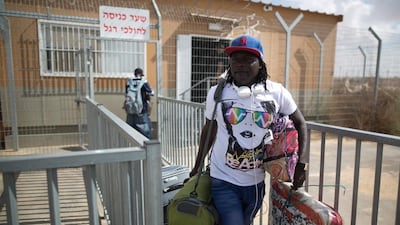In remarks delivered at the Saban Forum in Washington last week, US secretary of state John Kerry warned that the Israeli-Palestinian conflict is heading towards a one-state reality. For close observers of the conflict, Israel and Palestine have long been mired in a one-state situation. It is one in which Israel administers rights and privileges based solely on ethnicity and religion.
The pressing question now is not how the international community can avoid such a situation – it won’t – but how the conflict reached this stage and what can be done to reverse the current regime of inequality.
To address these issues requires an honest evaluation of Israel’s identity politics and the various manifestations of exclusionary policy that define Israeli governance. Since its founding in 1948, the country has been struggling to create a coherent identity for itself. How can a state remain democratic when it favours the rights of one ethnic or religious group over others?
The presence of non-Jewish citizens and residents – from Bedouin in the Negev desert, Palestinians in the West Bank and Gaza, and African asylum seekers – illustrates this problem. Ironically, Israel’s continuing colonial domination of the West Bank and Gaza – which has led it to the one-state reality – provides a steady source of conflict that gives Israeli citizens an ever-present enemy. If the threat is to be removed, serious questions about the identity of the state will be unavoidable. On the surface, the situation appears impossible to untangle. No wonder Israeli-Palestinian issues are clouded with utter desperation.
Unpacking the African asylum seekers issue, in particular, is most helpful in exploring the identity issues that inform Tel Aviv’s inability to make peace with the Palestinians. As a self-identified democracy founded by refugees, Israel’s policy of denying non-Jewish people asylum might seem anachronistic. The country was designed to be a haven for millions of Jewish refugees, but in its establishment created a refugee crisis for the native inhabitants of the land.
Since 1948 and the dispossession of roughly 750,000 native Palestinian residents, Israel has maintained a strict policy regarding non-Jewish refugees and immigrants. In the 1950s, as Palestinian refugees in neighbouring countries attempted to return to their homes, Tel Aviv mandated emergency regulations that labelled the refugees “infiltrators”. Those provisions are now being applied to African asylum seekers.
Over the past decade, thousands of African asylum seekers have sought refuge in Israel. Originating in Eritrea and Sudan, they have arrived by foot from Egypt’s Sinai Peninsula, enduring horrific conditions along the way, including kidnapping and torture. Many end up in the southern reaches of Tel Aviv, where they live in constant fear of deportation for their status as undocumented workers. According to the Israeli interior ministry, African asylum seekers now make up 0.5 per cent of the country’s population, totalling about 50,000.
Ever cognisant of its delicate Jewish majority, Tel Aviv has been reticent to recognise any asylum requests, despite the fact that Eritrean asylum seekers have one of the highest rates of absorption in the world. Instead, a litany of Israeli politicians have rallied against their presence. In a 2012 anti-asylum seeker rally, Miri Regev, minister for sport and culture from prime minister Benjamin Netanyahu’s Likud Party, went as far as to compare African refugees to a cancer on Israeli society.
This type of incitement has allowed the Israeli government to create refugee detention facilities, pass laws that allow for detention without trial and pursue “voluntary deportation” to third countries. It is a temporary fix that doesn’t appear to be solving the root problem. Instead of taking the asylum requests seriously, Tel Aviv is trying to pressure refugees to leave the country by threatening them with imprisonment without trial or deportation.
In a sign that no fundamental policy change is on the way, the Israeli interior ministry last week announced it would be expanding its main detention centre for asylum seekers, which is in the Negev desert. The facility is near capacity with 3,000 inmates. Israel has also doubled efforts to “voluntarily deport” asylum seekers to third countries such as Uganda. Refugees who have accepted this deportation – which includes $3,500 (Dh12,900) in cash and a one-way ticket – have reported that Uganda is ill-equipped to handle them and that Israel regularly failed to provide them with the necessary paperwork that would allow them to seek refugee status and work in a third country. In other words, they were essentially dumped in Uganda.
There is a growing trend of asylum seekers deported from Israel trying to subsequently make their way to Europe. In April, three Eritrean asylum seekers that Israel deported to Uganda were executed by ISIL in Libya as they attempted to make their way to Europe.
In short, the stance that Tel Aviv has taken with asylum seekers reveals Israel’s core tension between democracy and ethnocracy, or the country’s inability to be simultaneously Jewish and democratic. Democratic societies around the world, especially ones founded by refugees, should not turn their backs on asylum seekers. This tension remains the primary cause for Israel’s self-created, one-state reality with the Palestinians.
Employing a system of discriminatory laws honed by its control of Palestinians, Israel continues to deprive its non-Jewish residents of their rights. While this once only affected Palestinians in the occupied territories and Israel, today the legal foundations of the state are designed to ensure the privileges of Jewish Israelis above all others. The result is that legitimate asylum seekers are corralled into prisons and detained without trial. This is part and parcel of the one-state reality that western leaders are warning against.
As long as the tension between democracy and ethnocracy is left unresolved, this one-state reality will continue to typify the land between the Mediterranean Sea and Jordan River.
jdana@thenational.ae
On Twitter: @ibnezra

